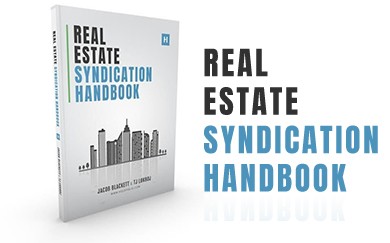Real estate crowdfunding is a popular way for multiple investors to pool capital together online and finance large property acquisitions.
In this article we will explain everything you need to know about crowdfunding, starting from what it is explaining step by step, Holdfolio is here to help you.
Read on to learn more about real estate crowdfunding and how you can start your journey to make a passive income!
What Is Real Estate Crowdfunding?
Real estate crowdfunding (also known as property crowdfunding) is a method of obtaining funds for real estate investments by acting with a group of investors who contribute an amount of their choice to purchase the holding.
Simply described, it is a method of obtaining cash that allows real estate investors with limited capital to participate in large-scale projects.
Real estate peer-to-peer lending, or fiduciary lending, is another term for real estate crowdfunding.

How Does Real Estate Crowdfunding work?
Real estate crowdfunding is one of the best passive income sources for investors, due to its high returns and little risk.
Here at Holdfolio, we’ve put together a simple, fast way for people to access lucrative real estate deals. Let’s get started.
After signing up to our online portal you can look through active investments and handpick the property you want to invest in.
All you need to do is invest as much as you want — while meeting the minimum requirement — then sit back and enjoy as the passive income you’ll receive grows your wealth!
The crowdfunding opportunities found on Holdfolio’s online portal are found, vetted, and listed exclusively by Holdfolio. You can’t find the same high-calibre investments anywhere else.
View more information on Crowdfunding with Holdfolio.
Pros of Real Estate Crowdfunding
There are multiple benefits to joining a real estate crowdfunding project.
Accessible Investing
Crowdfunding sites are now open to everyone, not just accredited investors, as of May 16, 2016.
This means that regular people can invest in start-up companies that were previously available to just angel and venture capital investors.
While the current Title III laws make it possible for non-accredited investors to participate in crowdfunded initiatives, it is not free for everyone. The Securities and Exchange Commission has limited the amount of money non-accredited investors can invest in a 12-month period. Your personal limit is determined by your net worth and annual income.
With Holdfolio’s online investment platform, non-accredited investors can easily join real estate crowdfunding projects.
Handpick Which Properties To Invest In
Being able to handpick the properties you want to invest in is a great advantage. But it is not available in every investing company.
With Holdfolio’s exclusive online portal, investors can browse through the multiple active real estate investment projects and choose freely whichever project they want to invest in.
High Return On Investment With Little Risk
When you invest in debt, you are purchasing a mortgage note backed by commercial real estate. As the loan is repaid, you will receive a portion of the interest. This sort of investment is regarded as less risky than stock, but it has a disadvantage in that returns are restricted by the interest rate on the note.
The average annual investor return that Holdfolio has produced is 19.5%.

Tax Benefits
Long-term capital gains are taxed at a lower rate.
Because real estate appreciates in value over time, it’s usual for real estate investors to sell their properties for more than they purchased for them. Long-term capital gains are taxed at a lower rate than short-term capital gains if you keep the property for more than a year.
Depreciation can be claimed.
You can depreciate — or write off — the cost of real estate over time if you utilize it for business or rent it out, which lowers your tax payment. Depreciation periods for real estate have been established by the IRS: 27.5 years for residential assets and 39 years for commercial properties. For instance, if you spend $100,000 on a single-family rental property, you can deduct $3,363 in depreciation each year. Certain renovations, such as repairing the roof or installing a new HVAC system, can also be depreciated.
Real estate investors can use a 1031 exchange.
You can use a 1031 exchange to swap out an investment property for a like-kind property while postponing capital gains. While a 1031 exchange can save you thousands of dollars in taxes, it is a complex operation with many tax rules. As a result, you should always hire a professional to ensure everything is done correctly.
Rental income is not a form of employment.
Rental income is exempt from Social Security and Medicare taxes, unlike wages from a job or self-employment income (FICA). While this isn’t a huge advantage over other sorts of investment income, it can save you a lot of money when compared to regular earned income. Let’s imagine you find a part-time job that pays you $20,000 each year. Your wages would owe you $1,530 in FICA taxes. A rental property that brought in $20,000 in revenue per year, on the other hand, would not be subject to FICA or self-employment taxes.
No day-to-day property management
Crowdfunding is a passive income source that you are a shareholder of, along with other investors. If you join a crowdfunding project along with a crowdfunding company that also manages properties, like Holdfolio, you will be saved from the day-to-day management duties that a sole owner would suffer from.
Portfolio diversification
One of the most prominent advantages of real estate crowdfunding is that it allows you to diversify your portfolio. By diversifying your portfolio, you are essentially spreading the risk associated with a single investment across a number of different investments.
Your investment portfolio will be split among other investments if one of your assets fails. To demonstrate the benefit, you might put $100,000 in investment A all at once, or you could invest the same amount in $20,000 increments among investments A, B, C, D, and E. You would lose $100,000 if you just invested in investment A and it failed completely.
However, if you had spread that money among five investments and one of them failed, you would only have lost $20,000 in total.
Cons of Real Estate Crowdfunding
The biggest disadvantages of real estate crowdfunding usually stem from going at it alone. Without joining an established company, like Holdfolio, you will have to deal with every single detail alone and this is definitely a very time-consuming process.
Finding Investors And Collecting Their Money
Persuading like-minded investors to join your crowdfund is often a hard sell. Smart investors prefer joining established investment companies due to their track record of success and to avoid the risks associated with sponsoring an unknown venture.
Not to mention, it’s much easier to secure a loan from a single person than to assemble a group of investors.
Increasing the number of participants may also reduce your profit margin. You should also remember to legally structure your transactions so that investors do not have an undue influence over the decision-making process. Making them limited partners is the simplest way to achieve this, but even that takes a lot of legal paperwork.
Illiquid Asset
Crowdsourcing is deemed an illiquid investment, i.e. these are investments that are difficult to sell for cash if the need arises.
A buyer will need to be found for the property you’ve invested in, which can take time and in some rare instances lead to a decline in the holding value.
Real estate is also considered an illiquid asset, which implies that withdrawing money from the investment for whatever reason is more difficult than withdrawing money from a brokerage account invested in stocks.

Who Can Invest In Real Estate Crowdfunding?
Real estate crowdfunding is currently open to both accredited and non-accredited investors.
Crowdfunding was previously open to accredited investors only — those who either have logged $200,000 in annual income for the past two years or currently have $1 million in net worth not counting their home — until former president Barack Obama’s securities deregulation law opened real estate crowdfunding to all investors.
The 2012 Jumpstart Our Business Startup (JOBS) Act has been phased in overtime; in 2016, a provision opening real estate crowdfunding to virtually anyone went into effect.
However, there are limits.
The non-accredited investor is restricted to investing no more than 5% of their annual income if they earn less than $100,000 per year.
Given the capital restrictions, it’s important for a non-accredited investor who wants to find a real estate crowdfunding platform that can meet them at a contribution that makes both legal and financial sense for them. The industry norm in real estate crowdfunding is a $50,000+ minimum capital requirement for investors to get started.
This is a powerful investment and needs to be made available to more investors to broaden access to wealth creation and financial security. Holdfolio is proud to work with non-accredited investors who can contribute $20,000 of capital or more in our real estate crowdfunding.
How You Can Get Involved
Now that you know what crowdfunding is and how it works, you probably want to know how you can get involved. Holdfolio’s online platform and small minimum investment amount have made real estate investing a real and easy possibility for everyone.
Holdfolio connects like-minded investors to raise capital for lucrative multifamily properties and helps them make the same high return as experienced real estate developers.
Real estate ventures were inaccessible for regular investors for a long time because they could not afford the high figures required by the development companies or they simply did not have the right connections.
Holdfolio is changing all of that by making real estate investing accessible to everyone. We believe that everyone should be able to access the same opportunities; so we are here to help regular investors to grow their wealth as much as experienced investors.
Holdfolio allows you to choose from various high-quality and resilient assets with just a $20,000 investment!
 Back to Blog
Back to Blog



